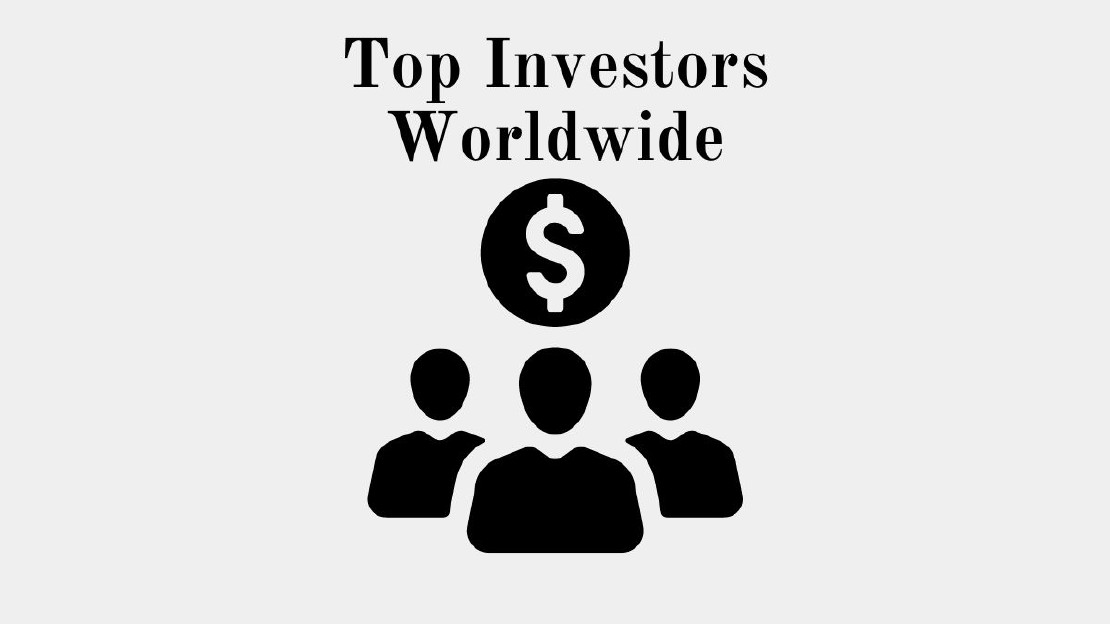Top 12 Investors
Investing is both an art and a science, requiring a keen understanding of market dynamics, economic trends, and the ability to foresee future opportunities. The following profiles cover twelve of the most influential investors who have made significant contributions to the investment world through their innovative strategies and remarkable achievements.
Top 12 Investors
Top investors are known for their keen market insights, strategic risk management, and knack for passive income investments. They often diversify their portfolios across various sectors to minimize risk and maximize returns. Consistent research and staying informed about global economic trends are crucial to their success. Their ability to identify undervalued assets and long-term growth opportunities sets them apart.
1. Warren Buffett
Warren Buffett, known as the “Oracle of Omaha,” follows a value investing approach. He focuses on companies with strong fundamentals, purchasing stocks and holding them for the long term.
Buffett’s Berkshire Hathaway has delivered compounded annual gains of over 20% for its shareholders. His investment in Coca-Cola and American Express are prime examples of his successful long-term strategy.
2. Peter Lynch
Peter Lynch is renowned for his “buy what you know” philosophy. He emphasizes thorough research and understanding of a company’s business model before investing. As the manager of the Fidelity Magellan Fund, Lynch achieved an average annual return of 29.2% from 1977 to 1990, outperforming the S&P 500 significantly.
3. Benjamin Graham
Benjamin Graham, the father of value investing, authored seminal works such as “The Intelligent Investor” and “Security Analysis.” He advocated for a meticulous analysis of a company’s financial health before investing. Graham’s strategies laid the foundation for modern investment theories and influenced countless investors, including Warren Buffett.
4. George Soros
George Soros is known for his reflexivity theory, which suggests that market prices can influence the fundamentals they are supposed to reflect. He is a master of short-term speculation and macroeconomic investing. Soros famously made a profit of 1 billion dollars by shorting the British pound in 1992, an event known as Black Wednesday.
5. John Templeton
Sir John Templeton focused on contrarian investing, seeking out undervalued stocks globally, particularly during periods of market pessimism. Templeton’s investments in Japanese stocks during the 1960s, when they were largely ignored by Western investors, resulted in substantial gains.
6. Ray Dalio
Ray Dalio, founder of Bridgewater Associates, employs a macroeconomic approach. He is known for his “Principles” philosophy and his use of extensive data analysis to make investment decisions. Under Dalio’s leadership, Bridgewater became the largest hedge fund in the world, with notable success during the 2008 financial crisis.
7. Carl Icahn
Carl Icahn is an activist investor, taking significant stakes in companies and pushing for changes to increase shareholder value. Icahn’s involvement in companies like Apple and Netflix has led to significant stock price increases, showcasing his impact as an activist investor.
8. Peter Thiel
Peter Thiel is a venture capitalist with a focus on technology and innovation. He looks for companies with the potential to create monopolistic markets. Thiel was an early investor in Facebook and co-founded PayPal, making substantial returns from these groundbreaking tech ventures.
9. Charlie Munger
Charlie Munger, vice chairman of Berkshire Hathaway, follows a value investing approach similar to Warren Buffett. He emphasizes rational decision-making and a multidisciplinary approach. Munger has played a crucial role in Berkshire Hathaway’s investment success, contributing to strategic decisions and investments in companies like Costco.
10. David Swensen
David Swensen pioneered the “Yale Model” of endowment investing, which emphasizes diversification across asset classes, including alternatives like private equity and real estate. As Yale University’s endowment manager, Swensen achieved annual returns of over 13% for more than three decades, significantly boosting the university’s financial resources.
11. Seth Klarman
Seth Klarman is a value investor known for his cautious and disciplined approach. He focuses on risk management and buying undervalued assets with a margin of safety. Klarman’s investment firm, Baupost Group, has delivered impressive returns over the years, earning him a reputation as one of the most successful hedge fund managers.
12. Jim Simons
Jim Simons, founder of Renaissance Technologies, employs quantitative analysis and algorithms to make investment decisions. His approach relies heavily on mathematical models and big data. Simons’ Medallion Fund is renowned for its high returns, averaging around 40% annually, making it one of the most successful hedge funds in history.
Conclusion
These twelve investors have not only achieved remarkable financial success but have also influenced the broader investment community by sharing investment strategies and insights. Their contributions continue to shape the financial landscape, offering valuable lessons for both novice and experienced investors alike.
Recent Posts

- Investments
Introduction to Investing
Investing is a crucial aspect of financial planning that empowers individuals to grow their wealth over time. Whether you’re aiming to save for …

- Investments
46 Passive Income Investments
Nowadays, the concept of making money with little or no effort has transformed from a mere possibility to a tangible reality. The allure of financial …

- Work From Home
Amazons Mechanical Turk Monetization Tips
Looking for flexible online income? These Amazons Mechanical Turk monetization tips will help you turn small tasks into real earnings. If traditional remote …
